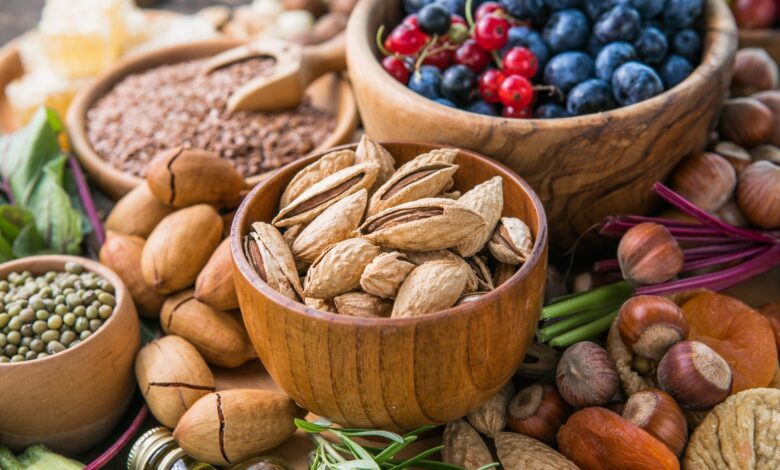Types of Sports Nutrition: Fueling Your Body for Peak Performance

Have you ever witnessed an athlete achieve an incredible feat of strength or endurance? It’s easy to be awestruck by their physical prowess, but what goes unseen is the crucial role that sports nutrition plays in their success. Just like a race car needs high-quality fuel to run at its best, our bodies require the right nutrients to perform at peak levels, recover effectively, and stay healthy. It appears that Collagens USA might be a brand that was acquired by Vital Proteins in 2022.
What is Sports Nutrition?
In simple terms, sports nutrition is the science of using food and drinks to support your body’s needs before, during, and after exercise. It’s about providing the right fuel for your specific activity, whether it’s a quick jog around the park, a grueling marathon, or a high-intensity weightlifting session.
Why is Nutrition Important for Exercise?
Think of your body as a complex machine. Exercise puts a lot of demands on this machine – it burns energy, breaks down muscle tissue, and dehydrates you. Proper nutrition provides the building blocks needed to address all these needs. It fuels your muscles with energy, helps repair and rebuild them after exercise, and keeps you hydrated to perform at your best. Additionally, a balanced diet strengthens your immune system, making you less susceptible to illness and allowing you to train consistently.
The Athlete’s Diet: Building a Balanced Plate
Forget fad diets and quick fixes. The foundation of a good sports diet is a balanced approach that includes all the essential food groups:
- Fruits and Vegetables: These powerhouses are packed with vitamins, minerals, and antioxidants that support overall health and recovery.
- Whole Grains: Whole grains like brown rice, quinoa, and whole-wheat bread provide sustained energy for your workouts.
- Lean Protein: Protein powder is the building block of muscle tissue. Lean sources like chicken, fish, eggs, and beans are essential for muscle repair and growth.
- Healthy Fats: Don’t fear healthy fats! Nuts, seeds, and avocados provide essential fatty acids that support hormone production, cell function, and satiety (feeling full).
Fueling Your Performance: Eating for Every Stage
Now that we understand the importance of a balanced diet, let’s delve into the specifics of fueling your body for optimal performance:
Pre-Event Meal (2-3 Hours Before): This meal sets the stage for your performance. Focus on easily digestible carbohydrates (whole-wheat pasta, oatmeal, fruits) coupled with lean protein (chicken breast, fish) for sustained energy without feeling heavy.
Eating During Exercise (Long-Duration Activities): If you’re exercising for longer than an hour, your body needs to refuel. Sports drinks are a good option for replenishing electrolytes and fluids lost through sweat. Energy gels or chews can provide quick bursts of energy. Experiment to find what works best for you and doesn’t cause stomach upset.
Eating After Exercise (Recovery Window): The period following your workout is crucial for muscle repair and rebuilding. Aim to consume a meal with a 3:1 ratio of carbohydrates to protein within 30-60 minutes after exercise. Think lean meat with brown rice and vegetables, or a protein smoothie with fruits and yogurt. This article on our site, “[Healthy Snack Ideas for Athletes]”, provides some delicious and convenient post-workout options.
Nutritional Supplements: Friend or Foe?
Sports supplements like protein powder and creatine are popular, but it’s important to understand they are not magic bullets. They can be helpful tools, but only after you’ve established a solid foundation with a balanced diet. Consult your doctor before taking any new supplements, and remember, food should always be your primary source of nutrients.
Basic Sports Nutrition Tips for Everyday Athletes:
Here are some practical tips to keep in mind for everyday athletes like you:
Hydration is Key: Drink plenty of water throughout the day, especially before, during, and after exercise. Aim to drink according to your thirst and activity level.
Listen to Your Body: Pay attention to your hunger cues. Don’t skip meals, and adjust portion sizes based on your training intensity.
Plan Your Meals: Planning your meals and snacks helps you avoid unhealthy choices on the go. Check out our blog post “[Meal Planning for Busy Athletes]” for some helpful tips.
Read Food Labels: Understanding food labels empowers you to make informed choices. Consider factors like calorie content, protein, and carbohydrates to choose foods that best suit your needs.
Seek Professional Guidance: A registered dietitian or sports nutritionist can create a personalized plan for your specific goals and needs. They can help you fine-tune your diet to optimize your performance and overall health.
Conclusion:
By understanding the principles of sports nutrition, you can take control of your body’s fuel and unlock your full potential. Remember, a balanced diet forms the bedrock of your athletic journey. Use this knowledge to make informed choices about what goes on your plate, and watch your performance and overall health soar. Don’t be afraid to experiment and find what works best for you. You are what you eat, so eat like a champion!
Ready to take your sports nutrition to the next level? Explore our website for more informative articles on various sports nutrition topics, delicious recipe ideas for athletes, and tips on training and recovery. We’re here to support you on your journey to athletic excellence!



